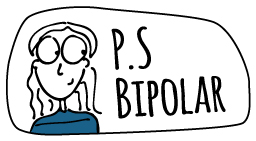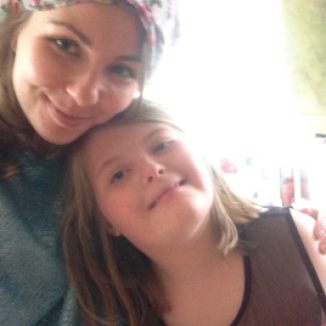So admittedly i am a little over my October month of guest bloggers but when Dannys blog on recovery language (see here) got my Aunt and i chatting about ability language i told her she must write me a blog! As far as i’m concerned if your eloquent in a passionate rant about something then you are destined to share your thoughts on that topic with the rest of the world. Once she got talking i realised how weird some of the terminology we use is and it’s certainly given me cause to reflect. As with recovery language not all of it will sit right with everyone but if we can all be aware of the gold standard then we can at least aim to get somewhere close – sort of like how i know i should eat large amounts of vegetables a day but i also intersperse this with carb heavy macaroni and cheese…
Our views on language within this context are actually very similar in that we both understand there are a number of issues around ability language that, as with mental health, mean it’s near impossible to adhere to these all the time.
I should also note that these are my Aunts views only and like my own don’t necessarily represent a community of thought…
I’ve been reading about Recovery Language. It turns out, although I hadn’t heard the term until I read Danny’s blog, it is all fairly familiar to me. It should be because I am, among other things, a disability advocate: one who intermittently preaches about the appropriate words to use and the best things to say. There are very close parallels with using positive, transformative language to feel better about who we are in any community. But do I always practice what I preach? Would I take every opportunity to enlighten the uninitiated? Well, frankly no and here’s the thing…
When the manuals say ‘rather than saying “alcoholic” refer to a person challenged with alcohol addiction” I get this, I really do. I myself am blessed with being the parent carer of a remarkable young person who happens to have Downs Syndrome. I have never seen this as having “a Downs”. So I know about being positive and person-first. I know that she is “differently-abled” rather than disabled, “challenged” (and challenging) rather than retarded and sometimes extremely uncompliant. I know that she has “special needs”, “learning difficulties”, “neurological differences” (but is not an idiot) and requires “additional support” rather than “care” to “achieve her full potential” rather than make her more normal. It makes perfect sense to communicate this in ability, rather than disability, language. I’m careful to call her peers “typically developing” rather than normal (although mischievously I like the ambiguous connotations “ordinary” too).
As my girl’s advocate, I have to lead by example in the way I promote her as a social being. As the manager of a support charity I also have to make sure everyone hears me doing this. I am actually genuinely passionate about people who have learning difficulties, their rights, and value. I would go further than some other ‘parents of remarkable young people who happen to have Down’s Syndrome, and say that it is not a chromosomal abnormality or an anomaly or a disorder. How can a naturally occurring variation in the species be described in a language of wrongness? Do we accept that only those with optimal chromosomal arrangements are correctly designed and everyone else is just an accident along the way to perfection? So I totally go along with pushing the terminology of “unusual chromosomal arrangement”
However, life and sanity frequently demand that I slide down off this particular soapbox and address the natives in their familiar terms. For a start, I’m not sure that saying “person who happens to have” emphatically, twice, really changed how that sounded in your head? It made me feel good, but you might have visualised anything from a smiley kid you know or a woman wielding a broom at McDonalds to something scary: someone you’ve crossed the street to avoid an uncomfortable dialogue with; someone you made sure could not be your child.. Maybe it sounded sanctimonious, even jargonistic. What you will have heard was personal, according to your existing image of people who have the diagnosis.
Yes, language is powerful and “person who happens to have” is more respectful than “downs girl”. In fact if I had my druthers we’d say a person with Trisomy21, which is at least accurate and more up than Down…but I digress. The point is that if I can’t improve your experience of being with people with unusual chromosomal arrangements, it really doesn’t matter what I call them. The meanings we bring define the words as much as the words we use define the meanings.
Political correctness (which itself isn’t as PC a term as it was) is so often just a race to change the words before the same negative meanings catch up. Sometimes negative impressions are eroded in the race and that’s helpful. For example, I would accept that “Down Syndrome” is less racist than “mongolism” especially if you happened to be from Mongolia, or look as if you might be. But the change in terms happened because the status of Mongolians with white western doctors, finally exceeded that of people with unusual chromosome arrangements. Down’s Syndrome is not racist in the geographical sense but it certainly is not neutral in it’s connotations today.
Then there’s speed. Not being the linguistic paragon I am supposed to be, I find I’m speaking on the phone to the parent of a child who happens to have an unusual chromosomal arrangement and writing on my pad “DS parent”. Sometimes I find it most appropriate to run “the Downs group” rather than the support charity for families of children who have Down’s Syndrome. I’m as sure as I can be that I’m not denigrating my community to myself or others in these situations. However, ability-language, like recovery language, invariably seems to be wordy. Is it because ALL words are over-used and full of associations, so we modify them by adding more? Sometimes it’s illuminating but sometimes it gives me a headache and makes taking notes impossible. And as for acronyms … enough already!
It can also be very divisive and distracting. Even within what I am daringly going to call “the Downs community”, we argue parent against parent about whether we say Down Syndrome or use the apostrophised version Down’s Syndrome because it’s important to some people that the ‘syndrome’ doesn’t ‘belong’ to the chromosomally typical Doctor who first observed it. I’ve seen people fall out over whether they absolutely have to use person-first on Facebook photo captions. To me personally, that’s a sideshow I’m not getting into. We need to work together to promote inclusion, not put ourselves morally above one another on account of the language we choose.
That brings me nicely to the next point because sadly being divided and distracted plays right into the hands of those using best practice ability language while creating worst practice outcomes. I speak of the many gatekeepers and budget-defenders that stand between people and the allocation of resources for support. I’m not knocking them all but there are often huge conflicts of interest for them. This produces conflicts and contradictions between what is said and what is done for people with needs. We need to be able to negotiate with these gatekeepers collectively.
So context is important too. At times, I am forced out of my person-first habitat and into the pit of diagnosis-led language because, that is the most effective way to get my child’s needs met. They say everyone has their price. Well we got quite a big grant in return for allowing a grant officer to put “children “suffering” from Down’s Syndrome” in an application. Not my finest hour and tbh my colleague and I tried to argue on that one. We gave in, being assured we had to address the funders in their own language. We scooped up our winnings and we did some good things for people who happen to have…with them. Later on, in return for 30 hours of 1:1 support at school and 10 ours of speech and language therapy I described my girl in full-on disability speak as an alien mass of needs. I also dismissed all (both naïve and financially-motivated) attempts to big-up her abilities. Too often, in my world at least, local authorities are careful to use our positive words to our faces but treat our children as statistics and pound signs. I’ve learned to fear the compliments and the respectful remarks because I know what they generally mean is “we aim to withhold or withdraw something – how hard are you likely to object?.”. All they seem to have learned from the language manuals are new words to mask old person-last behaviours.
At the end of the day, I come down on the side of actions speaking louder than words. If respecting and healing ourselves includes using a certain kind of language, then let’s use it. We also need to be multi-lingual though to have language fit for purpose in different situations. Personally I try not to get too hung up on it because I think we could also make our old words mean new things. To move forward there must be an integrated process of treating and describing each other respectfully belief at the core of our being that equality is right. That happens through exposure, exchange, deep communication and empathy, expressed in whatever language feels right at the time.
*Alisande Nuttall is the mother of Florence, a penguin enthusiast and paper-cutter extraordinaire who happens to have Down’s Syndrome. She is also the Development Manager of Up on Downs, the family support charity for families of children who have Down’s Syndrome in Hertfordshire www.upondowns.co.uk Views expressed are entirely personal.


